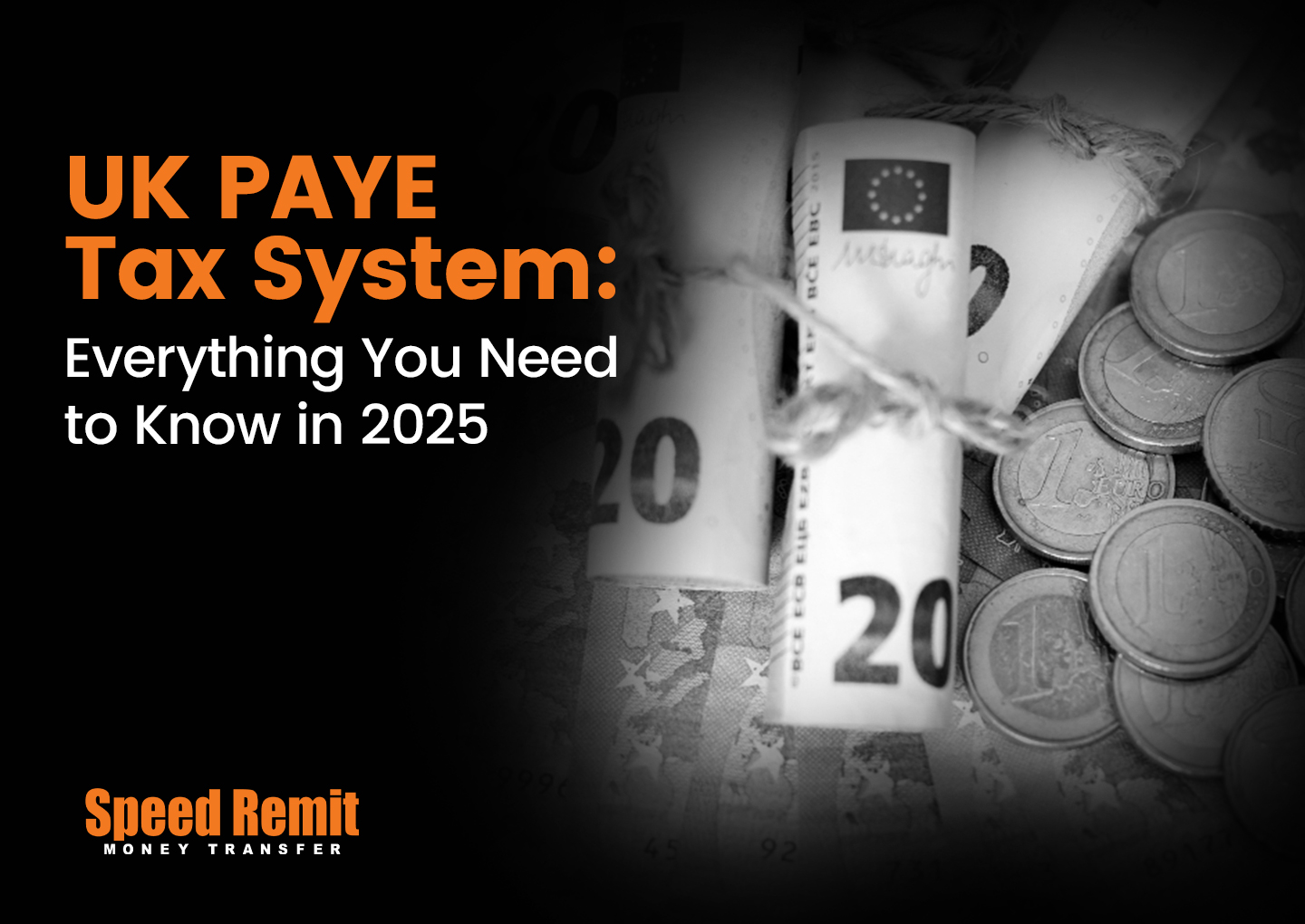Tax is compulsory, no matter where you live on the planet. And when the talk is about the tax system in the UK, everyone follows the PAYE Tax System. However, those who are supporting their family financially are always super conscious to know the system and the payable tax. Surely, this consciousness is just because they have to send money from the UK – A large share for the family. Thanks to smart innovations, the world is now super-convenient with advanced tax calculators and money transfer services in UK.
Coming back to the point, if you are curious to know all about the UK PAYE tax system, then you are at the right place. In this blog, you will be equipped with the must-have knowledge related to the UK tax system 2025. Therefore:
Keep connected to catch everything you need to know about the UK PAYE Tax System in 2025.
Table of Contents
What is the PAYE System?
Not only for the employers but the employees too, understanding the PAYE System in the UK is really an essential task. Well! The Pay-As-You-Earn (PAYE) system is designed by the UK government to collect the income tax and insurance (NIC) amounts precisely. The abbreviation tells itself that the employees must have to pay for the charges from their salaries before any other expense. To keep things working smoothly, employers deduct the charged amount generated against the employer’s tax code before paying the wage.
Key Updates in the PAYE Framework 2025
Want to know your tax in a precise way? Then, you need to keep yourself updated about the PAYE Framework every year. This year, one should be aware of:
1. Higher Personal Allowance Threshold
The year 2025 brings in a hike in personal allowance, which means – you can now earn slightly more than what you were earning before. All this is due to the past inflations experienced by the employees. Now, it’s changed from £12,570 up to £13,000.
2. Digital-First PAYE Reporting
Now, it’s super easy for the employees to report the PAYE information – thanks to the digital-first reporting system. Furthermore, it not only saves you time but also quickly under or over-payment issues.
3. More Integration with Universal Credit
The world is going digital, and the PAYE is following the world, which means PAYE information is now more closely linked to Universal Credit calculations. What it gives you is that any change in your salary is reflected instantly in your benefits.
Who Pays PAYE?
PAYE is primarily applied to:
- Full-time and part-time employees
- Workers on fixed-term contracts
- Company directors
- Some pension income (depending on total income and sources)
Self-employed individuals do not pay through PAYE. Instead, they file annual Self-assessment returns.
What Gets Deducted Through PAYE?
Here’s what your employer typically deducts before paying you:
- Your Income Tax
- Your Insurance Contributions
- Your Student Loan Tax
- Your Pension Tax
- Your Postgraduate Loan Tax
How to Check If You’re Paying the Right Tax
In 2025, it’s easier than ever to monitor your PAYE contributions:
- Use the HMRC mobile app
- Double-check your tax code
- Compare your annual earnings with the current tax bands
Incorrect tax codes remain a common issue, often leading to over or underpayment.
Common PAYE Questions in 2025
1- Can expats in the UK pay tax through PAYE?
Yes — if a UK company employs you, your tax is deducted through PAYE, just like any local employee.
2- What happens if I have two jobs?
Both employers will operate PAYE, but only one should use your full tax-free personal allowance. The other will tax you at a basic rate unless otherwise advised by HMRC.
3- What if I overpay?
HMRC automatically processes most refunds, but you can claim directly through your tax account if there’s a delay.
Final Words: Keep updated, Keep Obedient
The PAYE Tax System is the talk of the town in the UK, especially for the expats living there. The reason is that they financially support their loved ones via top money transfer Apps in the UK like Speed Remit.
From understanding the PAYE to paying the tax, it’s essential to know all about it. In 2025, not only the employees but also the employers will have more power to manage their taxes precisely.



